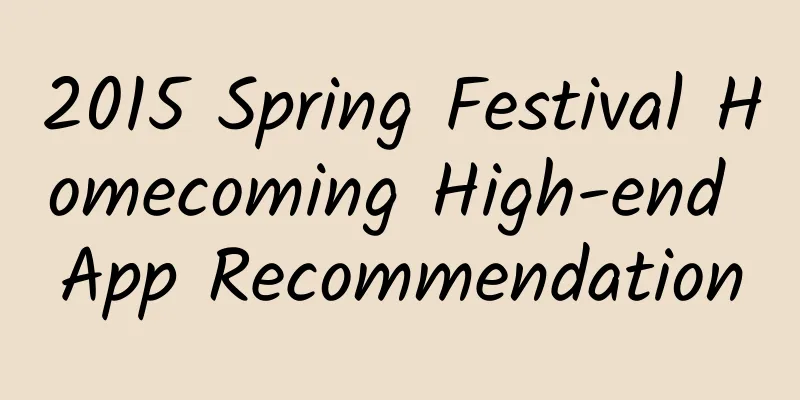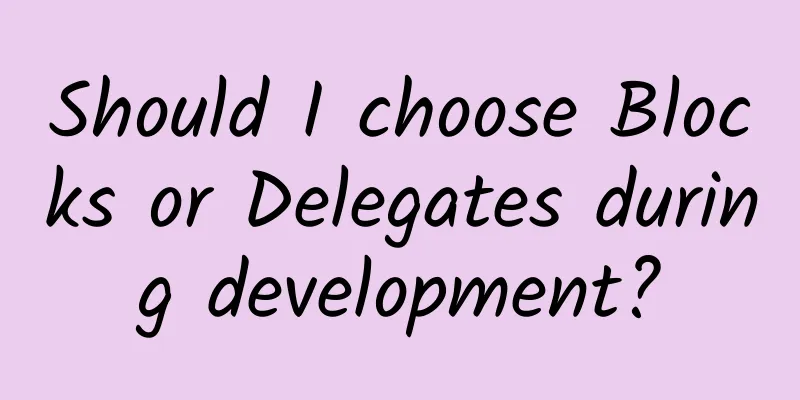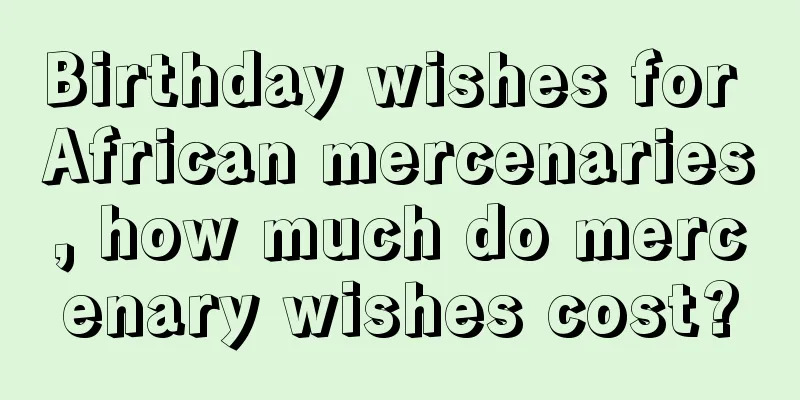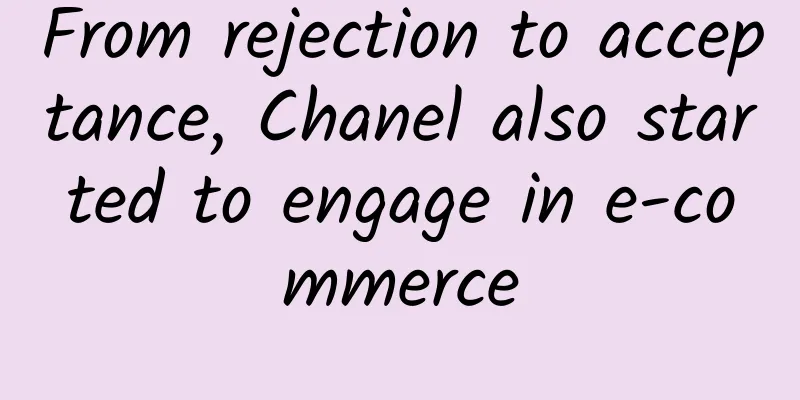"I hope you are well, but I don't want you to be too well", why do we envy others?
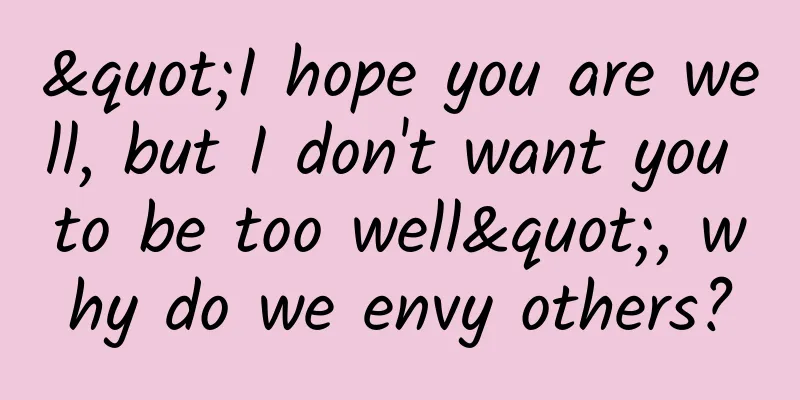
|
It seems that we are always comparing ourselves with the people around us: comparing grades when we are in school, comparing jobs when we are working; comparing family backgrounds when we are young, and showing off our children when we grow up... Social psychologist Leon Festinger believes that deep down in our hearts, there is a strong driving force that drives us to pursue accurate self-evaluation. In order to achieve this goal, we will unconsciously make social comparisons between ourselves and others. This kind of comparison is not a simple distinction between good and bad, but a way to gain self-belief and then use it to evaluate oneself. Therefore, to some extent, the reason why we make comparisons is actually to answer the ancient philosophical question: "Who am I?" This kind of comparison is not only a search for self-worth, but also a definition and confirmation of self-identity. Copyright images in the gallery. Reprinting and using them may lead to copyright disputes. However, “comparison” means competition. If you can “compared”, people will feel proud. If you cannot, they may feel envious, jealous, or even hate. The five words “envy, jealousy, and hatred” perfectly explain the complexity, progression, transformation, and high elasticity of people’s emotions when they see that they “cannot compete”. So what is the difference between "envy" and "jealousy"? And how can we distinguish whether we are "envious" or "jealous"? Envy creates motivation Jealousy brings destruction The emotions that arise when you "can't compare", whether it is envy, jealousy or hatred, are doomed to be negative and pessimistic. However, envy (envy) is more of a reasonable belief that "I want it too, and I can have it", while jealousy (jealous) focuses on the wrong belief that "I didn't get it because he took it away." Therefore, although the emotional experiences of envy and jealousy are full of desire and frustration, the core of envy is the appreciation of others' achievements and the confidence in one's own potential success. The emotional object ultimately points to the self, the relationship between "I" and "goal", which generates the motivation for self-improvement and pursuit of excellence. The core of jealousy is dissatisfaction with others' achievements and fear of what you can't get. The emotional object is ultimately others. It is a three-way relationship in which "others" cause "me" to lose "goals", which will produce a strong sense of competition, loss, threat, fear and insecurity. These negative experiences may lead to self-doubt and social withdrawal, or to destructive behaviors such as belittling others or trying to hinder their success. To some extent, envy focuses on lack, which means effort and striving, while jealousy focuses on loss, which means giving up and surrendering. When are you most likely to feel "envious"? When do you tend to feel jealous? Although envy and jealousy are different in many ways, in real life, the boundary between envy and jealousy is not so clear. Many psychological studies have shown that envy and jealousy are often intertwined, and even switch back and forth in certain situations, which reflects the complexity and diversity of human emotions. The results showed a strong consistent relationship between neurotic personality traits and jealousy, which means that individuals with unstable emotions and prone to anxiety are more likely to feel jealous. At the same time, people with latent narcissistic tendencies, that is, those who are overconfident in their own achievements and abilities, tend to be jealous of others' success because they are afraid of losing their superior status. On the contrary, people with high levels of self-esteem and self-confidence, strong inner security, and a good sense of self-efficacy are more likely to feel envy when faced with a situation where they "cannot compare" and turn it into positive motivation to push themselves forward. Copyright images in the gallery. Reprinting and using them may lead to copyright disputes. There are several key factors that influence whether people react with envy or jealousy in a given situation: 1. See if the relationship is strong enough Francis Bacon mentioned in his book "On Jealousy": "People can often tolerate the successful rise of a stranger, but find it difficult to tolerate the rapid rise of people they are familiar with." This profoundly reveals a phenomenon, that is, jealousy, more often comes from our admiration and comparison with the people close to us. However, when our relationship with others reaches a certain level of intimacy, in addition to envy, we will feel more genuine joy and relief for their success. Studies have shown that people’s jealousy towards superior others with a high degree of intimacy is significantly reduced compared to those with less close relationships; on the contrary, we are more likely to feel envious towards superior others with whom we have close relationships. In other words, in a superficially friendly "plastic sister" relationship, competition and jealousy often dominate, while in a truly deep friendship, mutual appreciation and support are more reflected. This mutual support based on deep friendship makes each other's success and progress arouse the envy of the other party, and further transforms it into the motivation to pursue higher goals together. 2. See if the gap is big When the gap between two people is large enough, the weaker party may feel that they are not even qualified to be jealous, and will only feel envy for the other party's achievements. This is because the huge gap makes comparison meaningless, thus suppressing the generation of jealousy. Psychological research shows that when people face others who are far superior to themselves, they are more likely to have a sense of admiration and learning. On the contrary, when the gap between two people is very small, seemingly within reach, but slightly inferior, jealousy will be hard to contain like weeds that grow wildly. Social comparison theory points out that when the gap between two people is very small, but there is a clear difference between superiority and inferiority, the weaker party is likely to feel pressure and unfairness from society, which then turns into strong jealousy. 3. Check the status When people are trapped in negative emotions or experiencing setbacks in life, comparing themselves with others and feeling "not as good as" them often further worsens their emotional state, deepens their inner feelings of frustration, and is more likely to breed jealousy. Take an exam as an example. If a friend gets a high score and you have made significant progress even though you haven't reached their level, people usually stay positive and celebrate with their friends. However, if your own grades drop significantly, you will be depressed. Seeing your friends happy because of their high scores will aggravate your depression and even cause jealousy. The psychological principle behind this is that negative emotions weaken our psychological defense mechanism, making us more sensitive and vulnerable to external threats. There is experimental evidence that when people are in a negative mood, they are more likely to feel jealous of others' success or happiness. In addition, related research also points out that individuals are more likely to make unfavorable social comparisons when they are in a low mood, which further exacerbates the generation of jealousy. 4. See if you are worthy of it Even if a person has excellent self-control, proper emotional management, and a strong sense of self-efficacy, it is difficult to completely suppress emotions of jealousy and resentment when faced with "unfair" phenomena. Psychological research reveals that when people realize that they are treated unfairly, they experience strong negative emotions and cognitive dissonance. At the same time, according to social comparison theory, when people observe that others' success seems too easy or obtained through improper means, and that such success does not match their actual abilities, jealousy can be easily aroused. This is especially true when an individual's efforts are ignored or not recognized. In short, the sense of injustice and the imbalance in social comparison are important causes of jealousy. Copyright images in the gallery. Reprinting and using them may lead to copyright disputes. 5. See if the threat is strong When others' success does not prevent us from pursuing the same goals, our emotions tend to be simple envy; however, once others' success means that our chances of achieving our goals are reduced or lost, this competitive relationship pattern will trigger jealousy. Take my best friend’s relationship as an example. If she finds a caring boyfriend, then as a single person, I may feel envious and happy for her. However, if this new boyfriend is the one I have been secretly in love with for a long time, the situation will change qualitatively. My best friend’s relationship directly hinders my possibility of developing with my favorite person, so I may experience a strong sense of jealousy and loss. From a psychological perspective, the degree of threat an individual feels is closely linked to their self-identity and self-esteem. When external people or things are seen as a significant threat to an individual's status, resources or achievements, jealousy is more likely to be aroused. Research shows that strong threat perception can intensify people's comparison tendency, making them pay more attention to those who are more successful or popular than themselves. In addition, the intensity of threat perception directly affects the intensity of jealousy. What to do when jealousy strikes? 1. Do four things As mentioned above, people tend to evaluate their abilities and achievements by comparing themselves with others. However, when this social comparison triggers jealousy, the comparison behavior originally intended for self-affirmation becomes a negative force. Intense jealousy not only makes us suffer and dissatisfied, but may also hinder our growth and progress. When jealousy is hard to suppress, adopting avoidance strategies may temporarily alleviate it: don't listen to others bragging, don't look at achievements that make people jealous, don't think deeply about the unfairness of comparison, and don't actively ask for information that stimulates you. By "not looking, not listening, not thinking, not asking", "comparison" has nowhere to take root, and jealousy is naturally difficult to breed. 2. Compare yourself Jealousy is directed at others, while envy is directed at oneself. When we truly learn to evaluate our self-worth based on internal standards rather than the eyes of others, we will no longer fall into endless comparisons. By changing our perspective, we can use the success of others as a goal and a beautiful expectation, which is a driving force to spur ourselves forward, rather than a denial of our self-worth; self-improvement is the yardstick for measuring self-worth. This change helps to reduce psychological pressure, improve self-efficacy, and inspire positive actions. 3. Practice mindfulness Mindfulness theory emphasizes nonjudgmental awareness of present experience. In the case of jealousy, mindfulness can help individuals recognize their emotions and accept their presence rather than being driven by them. Through mindfulness practice, individuals can more clearly see the deeper needs behind jealousy and potentially transform those needs into positive envy and action. References [1] He Xing, Cui Liying. Emotions about the wealth of others: A comparative analysis of social evaluation and cognitive processing of jealousy[J]. Advances in Psychological Science, 2016, 24(09): 1485-1495. [2] Shi Zhanbiao, Zhang Jianxin, Li Chunqiu. Advances in psychological research on jealousy[J]. Chinese Journal of Clinical Psychology, 2005(01):122-125. [3]Envy and Jealousy: Semantic Problems and Experiential Distinctions - Richard H. Smith, Sung Hee Kim, W. Gerrod Parrott, 1988 (sagepub.com) [4]'I'm not envious, I'm just jealous!': On the Difference Between Envy and Jealousy | Journal of the American Philosophical Association | Cambridge Core [5]Envy and Its Consequences: Why It Is Useful to Distinguish between Benign and Malicious Envy - Ven - 2016 - Social and Personality Psychology Compass - Wiley Online Library [6]Leveling up and down: The experiences of benign and malicious envy. (apa.org) [7]W. Parrott and Richard H. Smith. "Distinguishing the experiences of envy and jealousy.." Journal of Personality and Social Psychology (1993). 906-20. [8] Cao Yu, Wu Jieqing, Tao Rong. The impact of interpersonal relationship intimacy on the degree and type of jealousy among college students[J]. Chinese Journal of Clinical Psychology, 2018, 26(01): 56-59+34. [9] Hu Yun, Zhang Rongjuan, Li Wenhu. Correlation between jealousy, self-esteem and general self-efficacy[J]. Chinese Journal of Clinical Psychology, 2005(02):165-166+172. Author: Su Jing, National Level 2 Psychological Counselor Reviewer: Zhang Xin, Associate Professor, School of Psychology and Cognitive Science, Peking University Fan Chunlei, Associate Researcher, Institute of Psychology, Chinese Academy of Sciences |
<<: How to prevent snake bites outdoors in spring?
Recommend
Will drinking water with scale for a long time cause kidney stones? The answer is unexpected!
Friends who use kettles to boil water at home sho...
Content Operations: How to achieve sustainable growth through content?
This article uses four steps to help newbies in e...
WeChat 8.0.8 is here, you can enjoy a 10% discount by using WeChat to recharge on App Store!
Recently, WeChat quietly pushed the iOS WeChat 8....
There are 40 days in the dog days of 2020. When does the dog days of 2020 start?
There are 40 days in the dog days of 2020 Today i...
WeChat's CallKit feature, which was once banned, returns to iOS: Direct voice calls without unlocking
I wonder if you still remember that Apple launche...
Analysis of advertising placement in the education industry
Due to the impact of delayed resumption of work, ...
On the sixth day of the first lunar month, why do we put a pot of oranges at the door?
Today is the sixth day of the Lunar New Year The ...
The ultimate sales trick for big players
Introduction to the resources of the best sales p...
A niche and blue ocean sunshine analysis project
Today I will talk about a niche and blue ocean pr...
New energy vehicle exports surged 151%, and European subsidy policies attracted automakers to go overseas
In recent years, my country's new energy vehi...
How to operate and monetize automotive short videos? (Attached with case)
As an important vertical category in the short vi...
Making a killing! Parallel importers use huge iPhone 6 pre-order deposits to lend money
The absence of the iPhone 6 from the mainland was...
Terrible Pluto: It is not unfair to be kicked out of the ranks of planets in the solar system
Humans love to give names to celestial bodies, an...
Reminder! 14 days before the college entrance examination, this guide is for candidates
There are 14 days left until the 2022 college ent...
Looking for Easter eggs in the code, Google is no longer the Google you know
[[144804]] Google, the world's largest Intern...

